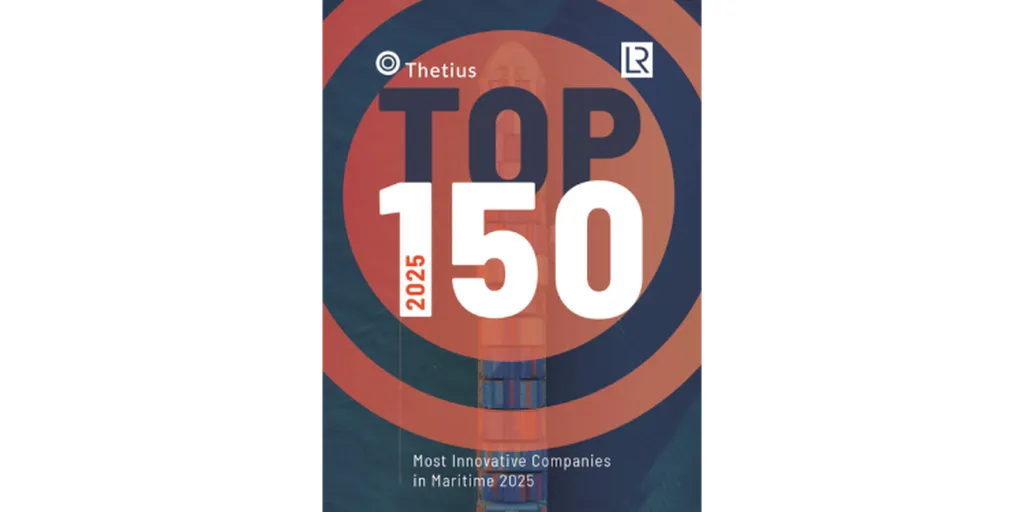The 2025 Thetius 150 report is out, and it’s a wake-up call for the maritime industry. This isn’t just another list—it’s a snapshot of who’s really moving the needle in shipping, and the message is clear: innovation isn’t a solo act. It’s a team sport, and the teams that collaborate, rethink, and execute are the ones reshaping global trade.
The report zeroes in on 150 companies—from scrappy startups to industry giants—pushing boundaries in digitalization, decarbonization, and operational smarts. But here’s the twist: these innovators aren’t just tech-driven. They’re visionaries, willing to challenge the status quo and rethink how ships are managed, fueled, and operated.
Take Maersk, for instance. The carrier made the cut for retrofitting a 14,000 TEU container ship to run on methanol—a first-of-its-kind feat. This isn’t just about slapping a new fuel system on an old ship; it’s about proving that even the biggest vessels can transition to greener fuels without sacrificing capacity or efficiency. If Maersk can pull this off, it sets a precedent for the rest of the industry. Suddenly, methanol isn’t just a lab experiment—it’s a viable option for the global fleet.
Then there’s Bureau Veritas Marine & Offshore (BV), which earned its spot for launching an AI-driven 3D inspection tool for ship surveys. But BV didn’t stop there. The classification society is also diving into liquid hydrogen research, showing that innovation isn’t just about today’s fixes—it’s about tomorrow’s breakthroughs. By bridging the gap between cutting-edge tech and real-world application, BV is helping the industry prepare for a future where hydrogen could be a cornerstone of maritime energy.
On the startup front, South Korea’s Avikus is making waves with its autonomous navigation systems. While autonomy in shipping has been talked about for years, Avikus is turning theory into practice, proving that unmanned vessels aren’t just a sci-fi fantasy. Meanwhile, US-based Aether Fuels is tackling decarbonization head-on with its Aether Aurora technology, which converts waste carbon into syngas for fuel synthesis. The result? Over 80% fewer greenhouse gas emissions compared to fossil fuels. This isn’t just innovation—it’s a game-changer for an industry under pressure to cut emissions fast.
And let’s not forget BetterSea, a Portuguese startup that’s helping shipowners navigate the EU’s FuelEU Maritime regulation with a digital platform. Compliance isn’t always sexy, but BetterSea is proving that even regulatory hurdles can be turned into opportunities—especially when technology makes the process smoother.
The Thetius 150 isn’t just a list of companies; it’s a roadmap for the future of shipping. Digitalization, cybersecurity, decarbonization, and new energy technologies are recurring themes, but the real takeaway is collaboration. As Mark Warner, Global Client Marketing Director at Lloyd’s Register, notes in the report’s foreword, “Progress in maritime is not driven by technology alone but by vision, collaboration, and a willingness to rethink long-standing practices.”
This is where the industry is headed—and it’s not just about who’s leading the charge. It’s about who’s willing to work together. The shift toward autonomy, for example, isn’t just about tech. It’s about building standards, trust, and frameworks that ensure safety, efficiency, and scalability. The future of shipping won’t be written by one company, one startup, or one government agency. It’ll be written by all of them, working in tandem.
The Thetius 150 report is a reminder that the maritime industry is at a crossroads. The companies on this list aren’t just adapting—they’re leading. And if the rest of the sector wants to keep up, it’s time to start collaborating, innovating, and rethinking the way we’ve always done things. Because one thing is clear: the future of shipping is being written right now—and it’s being written by those who dare to challenge the norm.

